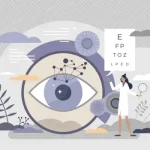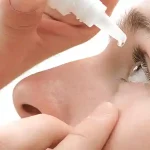Seasonal allergies happen only at certain times of the year, usually early spring through summer and into autumn. Main reason for them to occur is the exposure to allergens in the air, commonly pollen from grasses, trees, and weeds, as well as spores from molds. People who have allergies are often quick to seek help for symptoms like sneezing, sniffling, and nasal congestion. But allergies can affect the eyes too, causing red, itchy, burning, and watery eyes and swollen eyelids. The good news is that the same treatments and self-help strategies that ease nasal allergy symptoms work for eye allergies, too. Another name for eye allergies is ocular allergies. They normally don’t pose any threat to eyesight but red, itchy, burning and puffy eyes can be caused by infections and conditions that can affect eyesight if not taken care on right time. What causes eye allergies? Sometimes, it’s easy to tell what’s causing an allergy — for example, if symptoms strike when you go outside on a windy, high-pollen-count day, or when a furry friend climbs onto your lap. Normally harmless substances that cause problems for individuals who are predisposed to allergic reactions are called allergens. The most common airborne allergens that cause eye allergies are pollen, mold, dust and pet dander. Let’s have a look at some of the tips which you can follow this season to cope up with eye allergies- 1) The best approach to controlling your eye allergy symptoms is to do everything you can to limit your exposure to common allergens you are sensitive to. 2) When you do go outdoors during allergy season, wear wraparound sunglasses to help shield your eyes from pollen, ragweed, etc., and drive with your windows closed. 3) Don’t touch or rub your eyes. Rubbing your eyes can damage your cornea. Also, if you have anything on your hands, you risk getting it in your eyes. Try to use cold compress instead. 4) There are numerous non-prescription eye drops in the market. Use sterile saline eyewash or soothing wipe to clean your eyes before using an over-the-counter eye drop that relieves redness and acts as an effective antihistamine. 5) Avoid wearing eye makeup during this season. Also, don’t share the make-up kit with anyone else if you are using it. Miseries of allergies are faced by millions of people all over the world, with allergic reactions involving the eyes being a common complaint. Don’t tolerate itchy & watery eyes. If you suffer from eye allergies, see your optometrist about possible treatment options as soon as possible.





